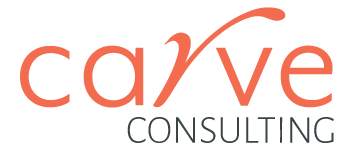Being able to assess, strategise and plan is the cornerstone of achieving career goals. If there is no goal then it can be more like a series of decisions that will take us somewhere but might not be where we intended.
Having a plan gives us a sense of control, and control feels good, it makes our goals feel more attainable. But what if the goal posts keep changing more often than my ten year old’s preference for dinner?
When the future sometimes seems certain only until the 11am press conference, what can we do to keep your career moving forward? Even when you might feel like throwing your hands in the air and calling time?
Keep focused on the long game
Seth Godin talks about focusing on the strategy rather than the tactical pivots. When we focus on our long term goal, rather than the daily decisions and pivots, we keep moving closer to what is truly important. When faced with an immediate issue or change, the key is not getting derailed by short term decisions .
A particular career change plan in a buoyant market, may take two steps. But in a depressed market that same career change may take three or even four steps.
Being adaptable is one of the core competencies sort for by employers. It is also crucial to building a sustainable and long career.
As job titles are interchangeable and vary dependant on industry and organisation, it is building your skills and competencies within your chosen sector that leads to opportunity. Assess a potential opportunity through the lens of what will I learn and what can I leverage in the future, not just the job title.
Achieving what we originally set out to rarely happens in a straight line or in the way we have envisioned. By keeping focused on where you want to go, you can keep moving forward, even if at times it feels like you’re taking hairpin bends up a mountain.
Control what you can
When all around us is chaos, focus on what is within your control. Feeling a lack of ability to change our circumstance, can lead to a sense of hopelessness. Take action around the elements you have control over such as your mindset, self awareness, qualifications, network activity, and career goal clarity. This can help you accept and navigate uncertainty.
By controlling what you can you also have to accept what you can’t. That means accepting the uncertainty of the market, organisational change and decisions by other people. Not to mention the sheer unpredictability of the world. The Chaos Theory of Careers by Jim Bright and Robert Pryor is particularly pertinent in the period we’re living.
Accepting uncertainty can be uncomfortable. But the more we can recognise it and still take calculated risks, the more agile we become. This primes us to take opportunities that cross our path.
Review and reassess
Often we set career goals based on a certain lifestyle, life stage or view of the world. But when reality shifts or priorities change, it can take courage to recognise that our goals don’t fit anymore and to reset.
It can be a healthy approach to review your career goals and plans every six months. During this time you should not only adjust your plans but celebrate your gains. In a more volatile time, it might be productive to do it more often.
If you feel like your career path is not as clear anymore or your plans have become derailed, trust that you’re in good company. Many people have been forced to adjust plans. Even if you have to take a side track to get through a lock down, it will be how proudly you tell your story that will help your future employer see your adaptability and resourcefulness.

